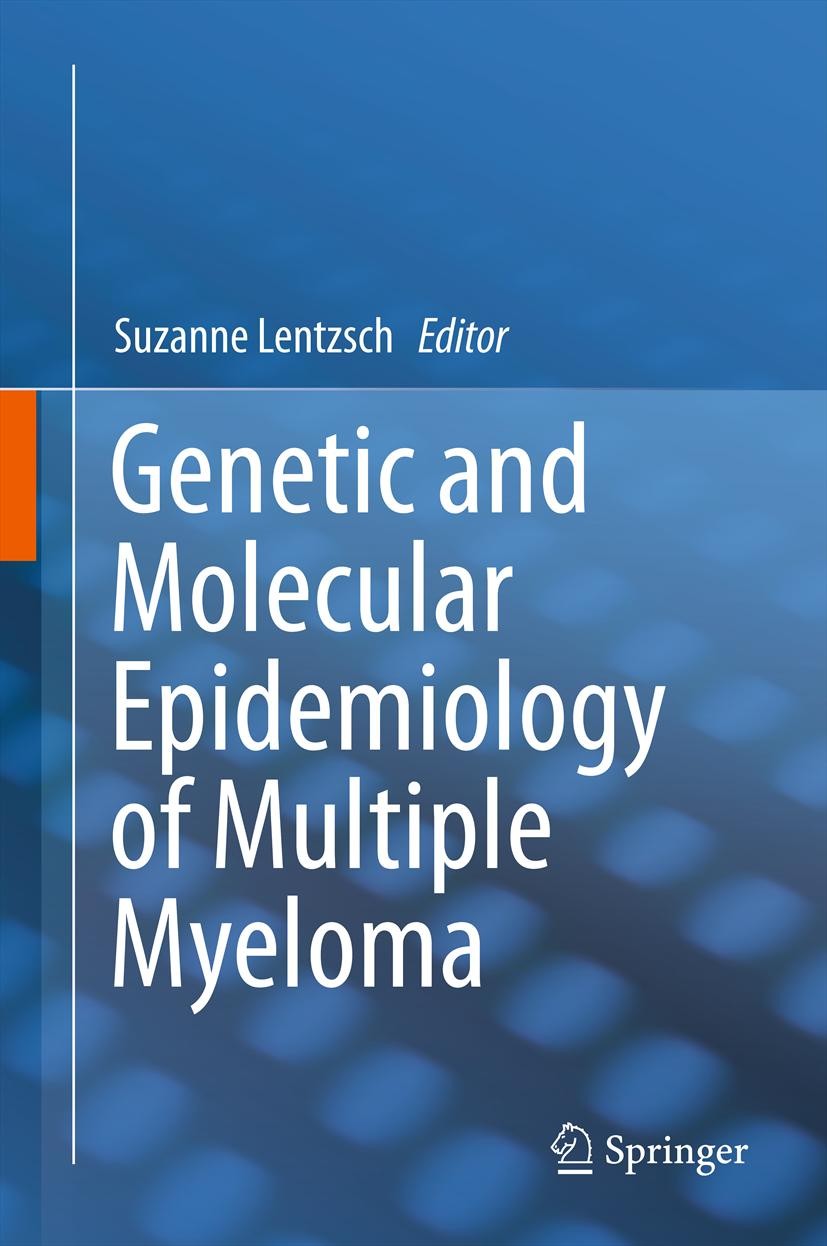| 书目名称 | Genetic and Molecular Epidemiology of Multiple Myeloma |
| 编辑 | Suzanne Lentzsch |
| 视频video | http://file.papertrans.cn/383/382664/382664.mp4 |
| 概述 | Explores the role of protein translation in multiple myeloma.Discusses epigenetic gene silencing as a new target for multiple myeloma immune surveillance.Examines the cell cycle control of plasma cell |
| 图书封面 |  |
| 描述 | Multiple myeloma is a plasma cell malignancy characterized by complex heterogenous cytogenetic abnormalities that accounts for 1.4% of all cancers, and approximately 10% of hematologic malignancies. The clinical manifestations of multiple myeloma include lytic bone lesions, cytopenia, hypercalcemia, renal dysfunction, hyperviscosity of the blood, immunodeficiency, and peripheral neuropathy. Based on the clinical and genetic data, probably all cases of multiple myeloma arise from an asymptomatic monoclonal gammopathy of unknown significance. The exact mechanism of the transition from MGUS to overt multiple myeloma is still not well understood. Recent oncogenomic studies have further advanced our understanding of the molecular pathogenesis of multiple myeloma. This book will give a comprehensive overview of the genetic and molecular epidemiology of multiple myeloma in order to get a more refined and conclusive understanding of this disease. |
| 出版日期 | Book 2013 |
| 关键词 | IRESs; Kahler‘s disease; MGUS; bone disease; protein translation |
| 版次 | 1 |
| doi | https://doi.org/10.1007/978-1-4614-4660-6 |
| isbn_softcover | 978-1-4899-9865-1 |
| isbn_ebook | 978-1-4614-4660-6 |
| copyright | Springer Science+Business Media New York 2013 |
 |Archiver|手机版|小黑屋|
派博传思国际
( 京公网安备110108008328)
GMT+8, 2025-12-15 11:37
|Archiver|手机版|小黑屋|
派博传思国际
( 京公网安备110108008328)
GMT+8, 2025-12-15 11:37


